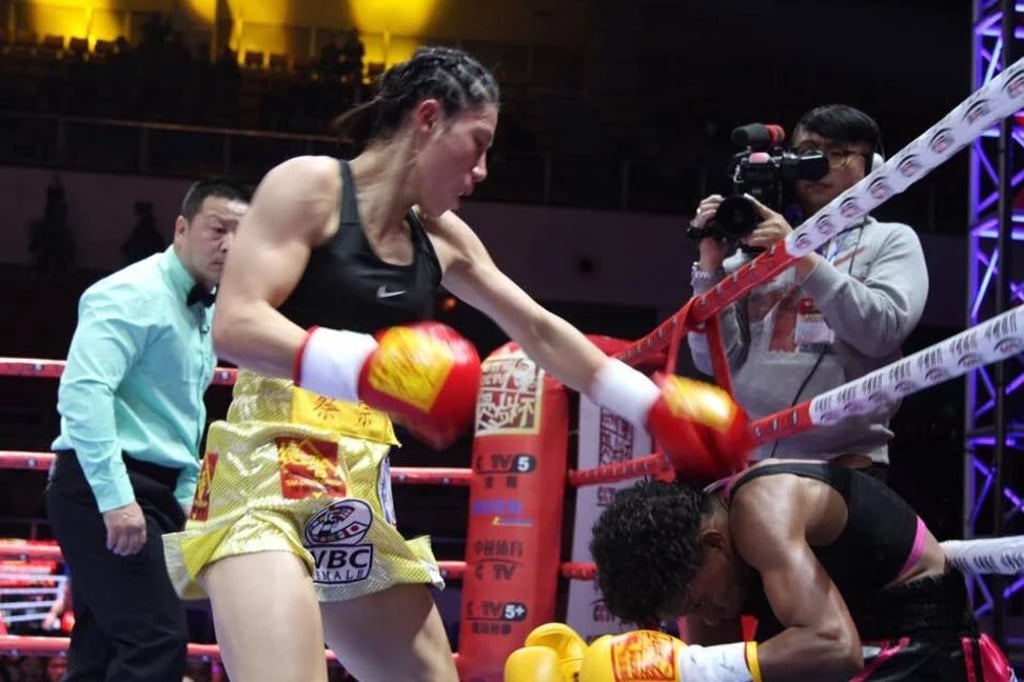Meet Cai Zongju, the former boxing world champion shrugging off gender stereotypes in China
- Cai was once asked by a TV interviewer why she chose to be a boxer because ‘you are a girl’ and ‘mommy’s treasure’
- But the former IBF world minimumweight champion takes the stereotypes in her stride

China has produced three male world champions in professional boxing. Women, though, have gone one better – four have won world titles.
In 2006, Gao Lijun won the WBA featherweight belt. Zhang Xiyan took the WBA super featherweight crown in 2007 and Wang Yanan added the WBC middleweight world title the following year.
The latest in line is southpaw Cai Zongju, who won the IBF world minimumweight title in 2017.
Growing up in a village near the city of Yangtai in Shandong province, Cai, an athletic girl who could not sit still, was noticed by the state sports system as a preteen.

She was offered a place in ti xiao (sports boarding school) in the nearby city of Zhaoyuan. Cai says that at the time she knew so little about the world that she was not even aware that boxing existed, although she loved watching martial arts films.
She immediately agreed to leave her family and move to the school. “Before letting me go, my mother asked me if I was afraid of hard work,” recalled Cai in a documentary. “I said, ‘No’.”